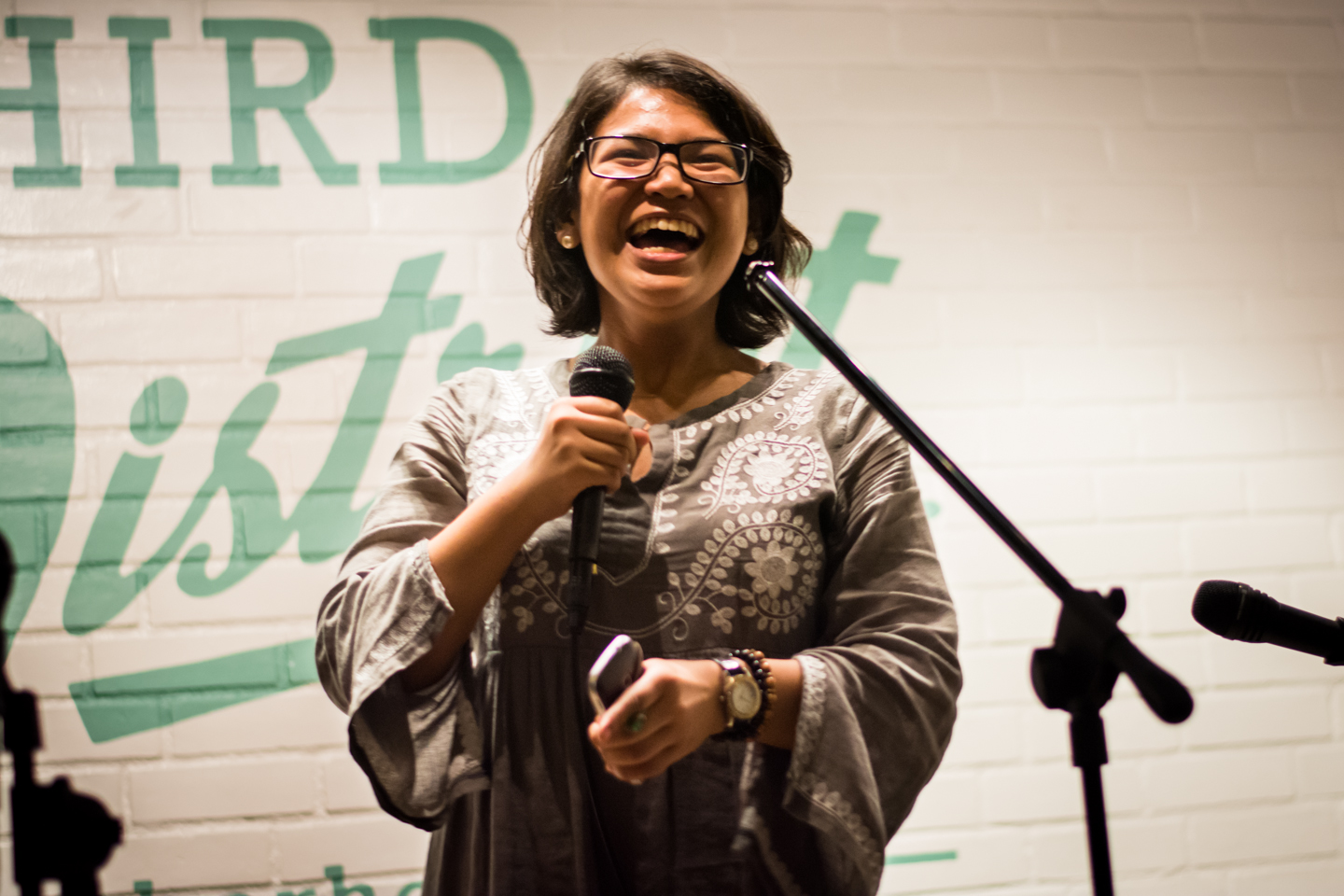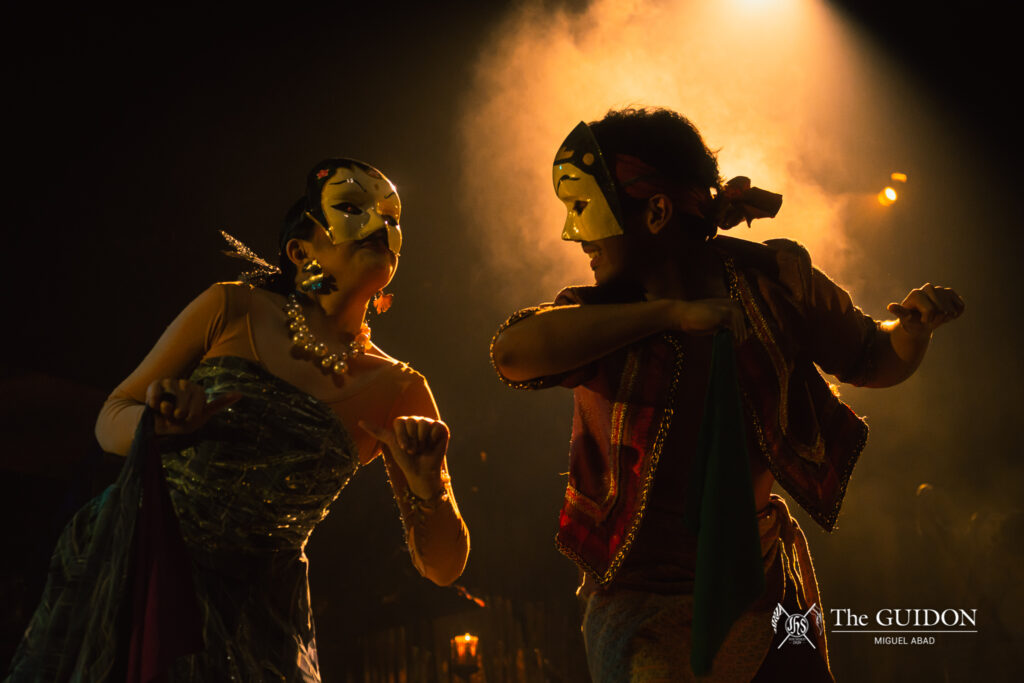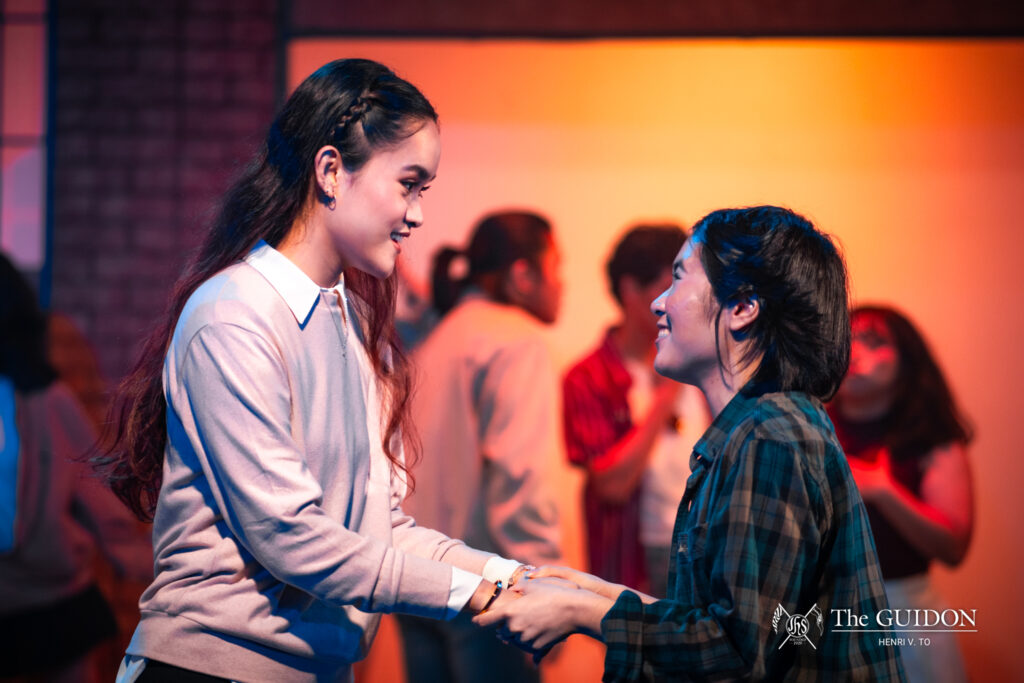The kids of Mga Apo ni Lola Basyang Storytelling Group, or simply Apo, are huddled inside the intimate space of Sancho Churreria along Maginhawa Street. I’m lucky enough to have been invited to their first official Kwentuhan session, and everyone present is expected to perform an oral piece.
As I sit there and listen, I’m engrossed with everyone’s storytelling abilities, too engrossed perhaps that it comes as a shock when I was invited to perform next. They weren’t kidding when they said everyone is expected to share a story.
Since I didn’t have a story prepared for the occasion, I chose to read out a poem instead. My performance was quick, and the audience applauds as I take my seat. I settle down and let the pros take the stage.
As their name suggests, the people behind Apo consider themselves descendants of Lola Basyang. Unlike their matron, however, these performers won’t be sitting you down and reading you a storybook. “That was storytelling in the past,” explains Simone Sales, a social sciences sophomore and the group’s founder. “This is storytelling in the present, and we have our own style as a new generation.”
The young storytellers of Apo are finding more and more ways to tell their stories. This recent Kwentuhan session saw members’ performances range from spoken word pieces and poems, to musical performances.
Upholding the ancient oral tradition has never been this refreshing.
Earliest stories
The no-holds-barred approach of the group stems from Sales’ own experience with other storytelling groups. After grabbing a gold medal for Storytelling in the Asian English Olympics—an annual event hosted by Binus University in Indonesia promoting English literacy in Asia—she became a part of one of the few groups devoted to storytelling in the country, Storyhouse Philippines. Here, she did volunteer work performing in museums and orphanages. During her stint, however, she had to comply with strict rules, such as a provided theme and language use, among others.
“I don’t like restrictions. If ever I do give [a] time limit, that’s because there are other people performing,” Sales shares. While Storyhouse helped foster her love for storytelling, Sales wanted to form her own group without these restrictions. This, combined with her passion for the oral tradition, motivated her to get a storytelling group off the ground.
Inviting all her friends to drop by, Sales was able to get the word out on Apo. “My friends are all really open to new ideas and a lot of them are legitimately interested in poetry and spoken word,” she explains. These same eager friends cheering in the sidelines eventually became members of the group as well.
But if their successful launch last February is any indication, Apo is quickly growing well beyond Sales’ circle of friends.
Never doubt the word-of-mouth
Held in Third District Café last February 28, Apo’s launch saw a headcount that far exceeded Sales’ expectations. Her friends were able to bring more people in, then word of the budding group quickly spread. How far exactly did that word go? You’d be surprised to find out that they have members coming all the way from De La Salle-Lipa.
Gabe Bueno, a psychology sophomore and a member of Apo, shares how diverse their group of almost 40 has become, “We have a group of people from varying perspectives; some are from De La Salle, one of us is a very religious individual, others still are radio DJs or professional musicians.”
The café was so crowded that audience members had to stand or even sit on the floor. The surprising number of people in the launch included not only students from different universities, but also teachers from Miriam College High School and Ateneo High School. But that didn’t seem to change the event’s intimate ambiance. Mia dela Torre, a management of applied chemistry sophomore and an attendee of the launch, shares, “They were so comfortable with each other. There wasn’t any awkwardness. There was no restriction in expressing themselves.”
It was in this event that Sales first got to test out her only rule: That there are no rules. It was open mic and anyone who wanted to perform got the chance to, whether or not they were members of the group. The result was an eclectic mix of energetic and sentimental stories. For anyone who gets to see the performers, the experience can leave you itching to get up and perform as well.
Catching the performing high
The stories move people in ways that don’t compare to simply sitting down and reading a story. “When you watch people perform and you see how much confidence they have, it’s kind of contagious—the performing high,” Sales elaborates. It’s also the reason she encouraged everyone who attended the Kwentuhan session to prepare a piece, even this Vantage journalist who was only there to observe.
“That’s why I required everyone to prepare something for [the Kwentuhan session], because even if you didn’t, you’d wish you did,” Sales insists. Indeed, nothing beats the rush of watching these talented young storytellers, but it’s an even bigger rush to try your hand at storytelling as well.
With more open-mic Kwentuhan sessions coming their way, one can only hope this group continues with their collective voice to encourage more people to tell stories. Not sure if I’m looking forward to performing again, but I’m definitely going to their future Kwentuhan sessions to listen to this talented bunch. Lola Basyang’s grandchildren are finally getting into the family business: They’re here to stay and get everyone talking.






